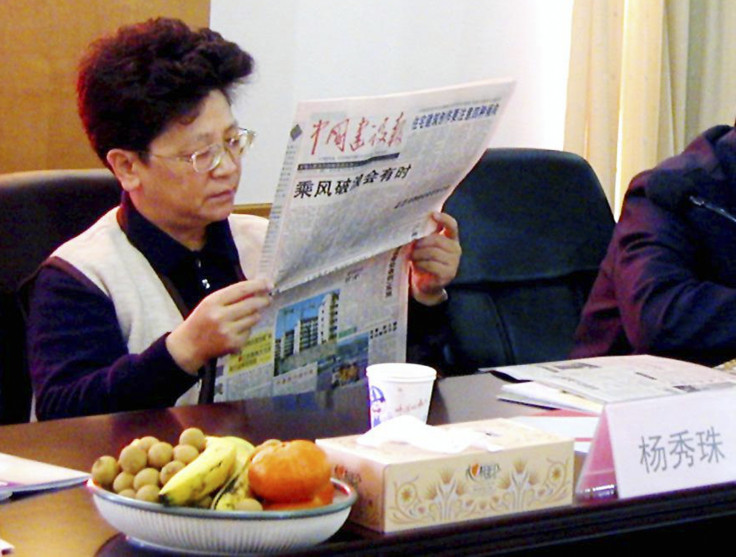China's most wanted fugitive Yang Xiuzhu ends her 13-year run to face justice
The woman was flown in from the US after American and Chinese officials worked together on her return.

China's most wanted fugitive, a former deputy mayor accused of embezzling more than $40m (£26m), has returned to the country to face corruption charges.
Yang Xiuzhu, a 70-year-old woman, spent 13 years on the run across the world and was number one on the list of 100 most-wanted graft suspects that Beijing has asked Interpol to help apprehend. Another 36 people on that list have been arrested in the past 18 months, including Yang's brother, Yang Jinjun, who is suspected of graft and bribery and returned to China late last year.
Yang fled China in 2003 as she was being investigated for corruption. According to the Central Commission for Discipline Inspection (CCDI), she had previously sought asylum in Hong Kong, Singapore, France, the Netherlands and Italy before arriving in the US in 2014, filing and then withdrawing a new asylum request.
The commission explained that, as the US and China have no extradition treaty, officials requested her return through the countries' Joint Liaison Group on Law Enforcement Cooperation, providing evidence that aided in her detention in late 2014, and the freezing of her assets. The CCDI called the operation "an important achievement in anti-graft law enforcement co-operation between China and the United States," which the Chinese state media described as "a major destination for corrupt Chinese officials and economic fugitives".
The Associated Press said authorities assured Yang she would receive relatively lenient treatment if she turned herself in. According to local media reports, Yang's declining health was a factor in why she had agreed return to China.
Her arrest is of such relevance for the Chinese government that the whole process was broadcast live on state television. The government has made the fight against corruption, particularly among officials, a priority, but human rights advocates are still concerned about abuses of power and a lack of transparency within China's legal and judiciary system. The election of Chinese police official Meng Hongweias president of Interpol on 10 November added to these concerns as Interpol's resources has previously been used to arrest political dissenters.
© Copyright IBTimes 2025. All rights reserved.






















